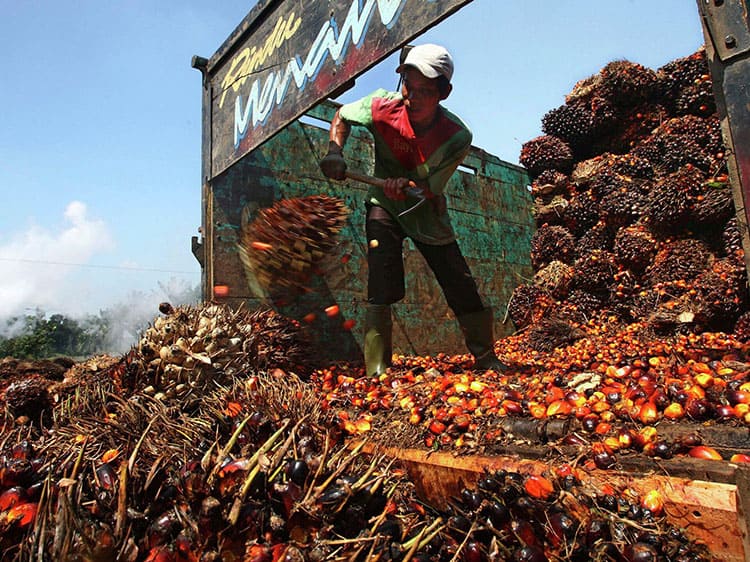
Malaysian palm oil futures recouped earlier losses to close Wednesday’s afternoon session higher, following a recovery in US soybean oil, helped by a weaker ringgit. The underlying palm oil contract for October delivery on the Bursa Malaysia derivatives exchange rose 0.98% to RM3,824 ($858.17) a ton by late afternoon trading.
The contract fell 3.14% earlier Wednesday but was lifted by a recovery in Chicago Mercantile Exchange soybean oil prices, which rose 2.26% by 1019 GMT, and a weaker ringgit.
Soybean oil has been rising in price over the past few days due to concerns about a poor soybean harvest and related oil price performance as prices are lower than they were a month ago.
Unfavorable weather conditions expected in parts of the US Midwest are threatening to reduce yields, prompting funds to increase their buying positions in the derivatives market. Corn and soybean yields are especially weathered sensitive in July and August, so the market often gets hung up on every new forecast model launched at that time of year, as each update has the potential to improve or change current sentiment.
Palm oil is heavily influenced by the price dynamics of associated oils as they compete for a share in the global vegetable oil market. Palm oil has a strong correlation with soybean oil in terms of price fluctuations. It has plummeted in price over the past two months as rival Indonesia resumed exports. So far, it has lost about 18% in July after falling 22% in June. Meanwhile, export sales of crude palm oil from Indonesia’s leading producer began to rise, and the total export volume reached 100 000 tons to 140 000 tons per day after the government lifted export restrictions.
Learn how to trade commodities and other popular assets with Top Forex brokers in Malaysia
What happened in Indonesia and how did it affect the market prices of palm oil?
Indonesia will maintain domestic palm oil sales (DMO) requirements to ensure the product is affordable in the domestic market, while the export quota is increased. The world’s largest producer will allow exporters to ship nine times the volume sold locally under the domestic sales rule, up from seven times previously, as part of measures to reduce high stocks of palm oil.
Previously, industry representatives have applied to the government of the country with a request to cancel the DMO, according to which exporters must sell a certain share of products in the domestic market to obtain permission to export oil. However, this led to a slowdown in palm oil shipments to foreign markets and the accumulation of the product in the country.
To reduce stocks, since August 1, Indonesia has allowed exporters to ship an increased amount of palm oil – 9 times more than before under DMO conditions. However, the general rule for domestic sales will continue to be gradual to reduce stocks gradually, as a sharp decline in stocks of oil in Indonesia will lead to significant fluctuations in palm oil prices in the external market.
What to expect from the prices of Malaysian oil in the future?
Since the Russo-Ukrainian conflict, demand for palm oil biofuel has been strong and its demand outlook remains optimistic for the second half of 2022. The holiday season is approaching in India, which means demand in India is expected to pick up in the coming weeks. India is the second largest consumer of palm oil in the world after Indonesia.
As previously reported, Malaysia is poised to meet India’s demand for palm oil amid a mixed supply of the product from Indonesia. In particular, India expects an increase in palm oil imports to 800,000 tons per month over the next 6 months, as stated by the Minister of Industry and Raw Materials of Malaysia, Zuraida Kamaruddin.
Overall, our analysts expect a favorable trading scenario in the second half of 2022, with prices still on the positive side with favorable weather and an easing labor shortage in Malaysia.
Previously, due to restrictions on movement across the border during the active period of COVID in Malaysia, there was a problem of labor shortage. As the outlook for Malaysian palm oil exports has improved, an increased production scenario would mean an improvement in trade prospects in the coming months.
Subscribe for our newsletter
Get Forex brokers reviews, market insights, expert analytics and education material right into your inbox for free!